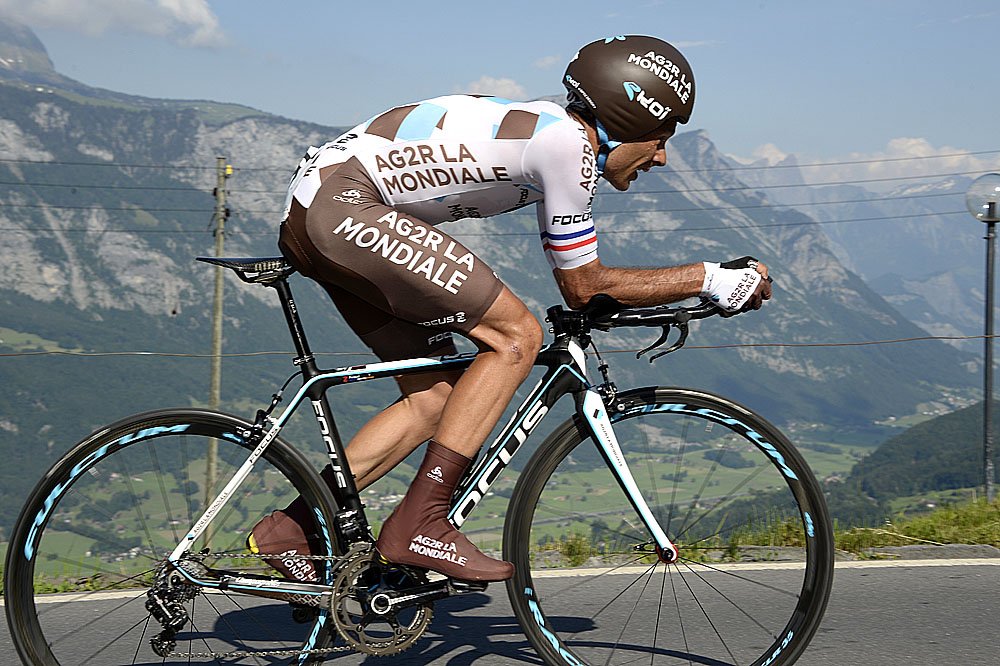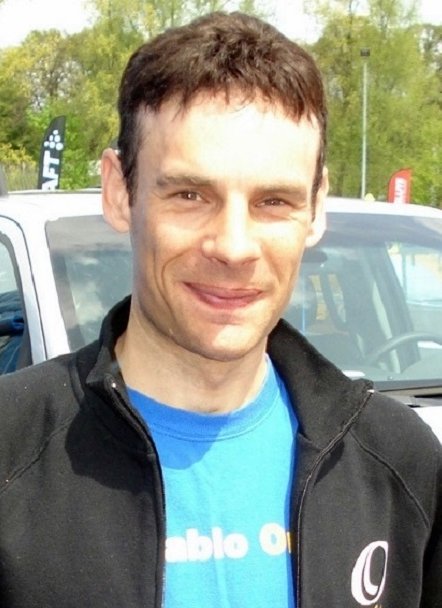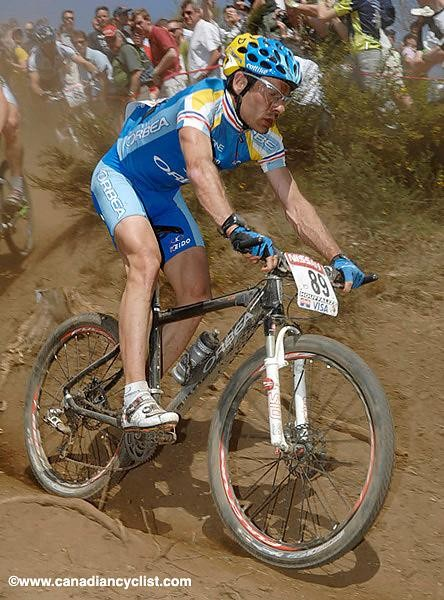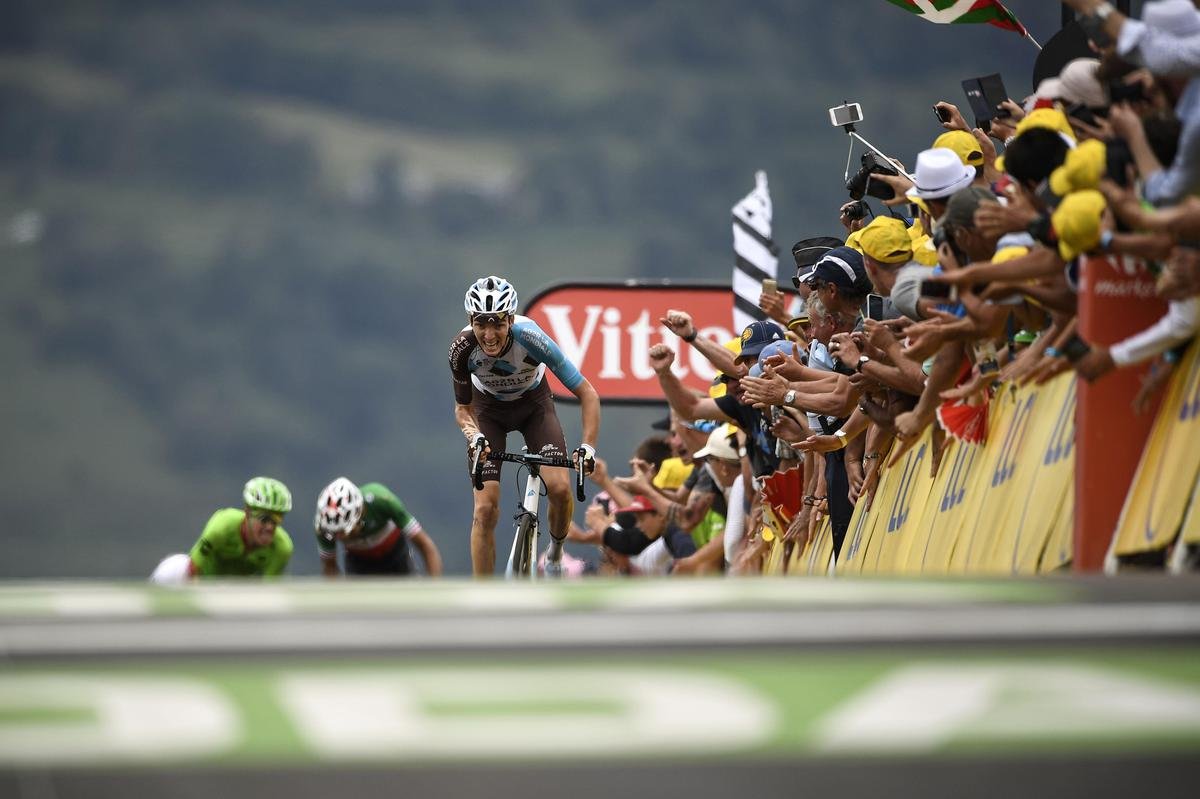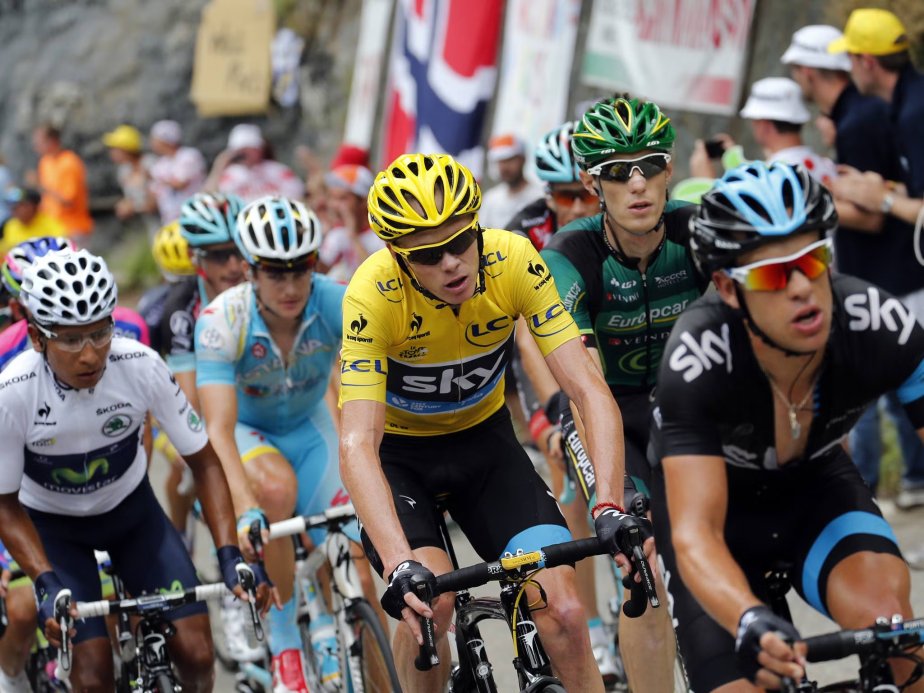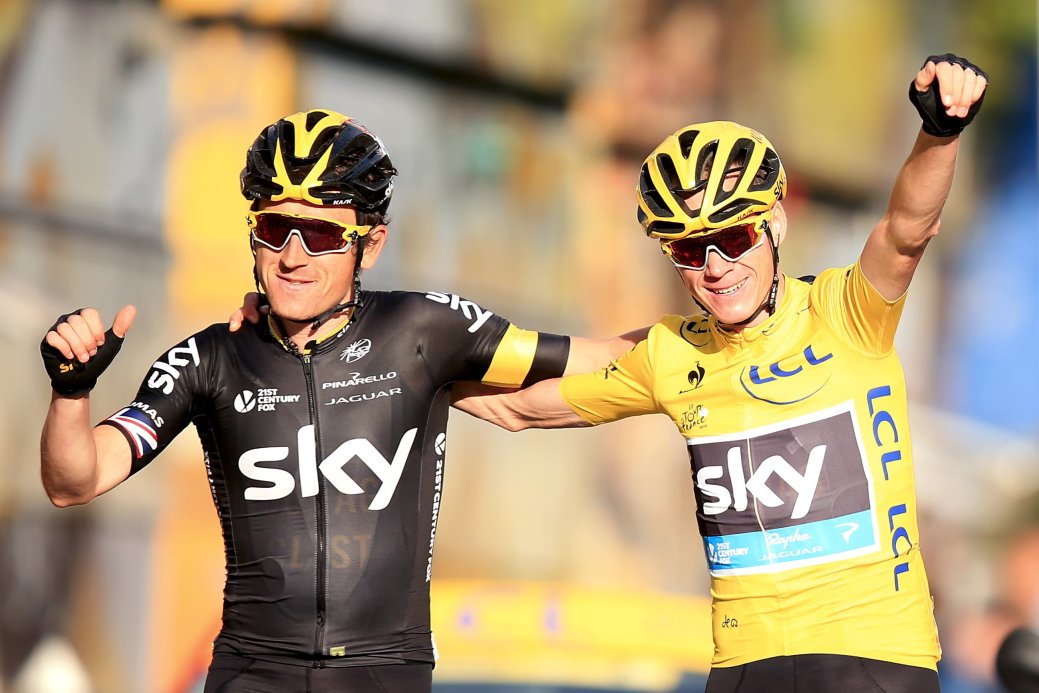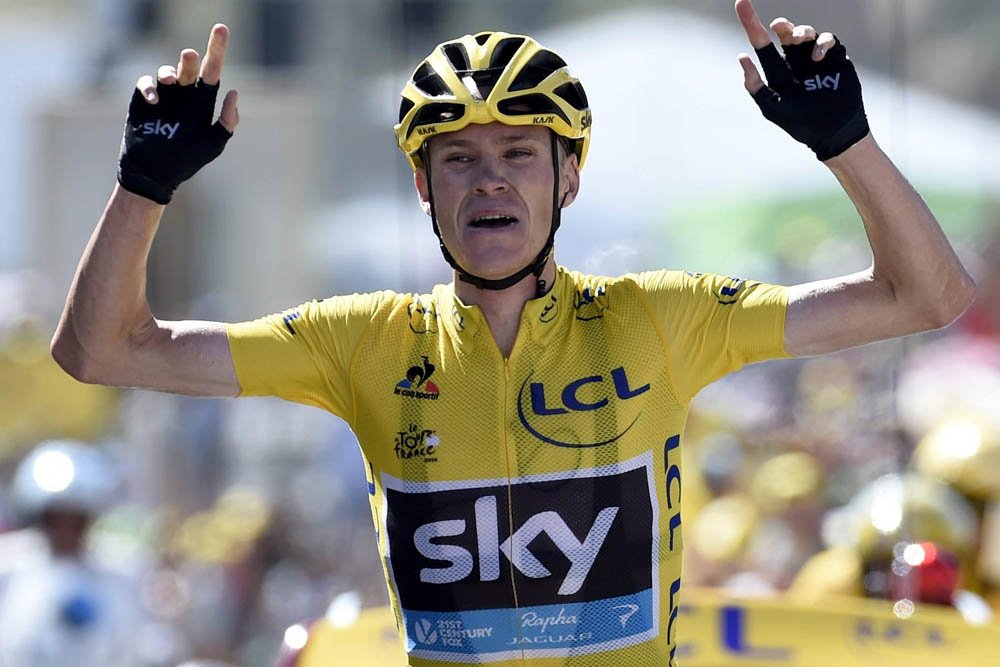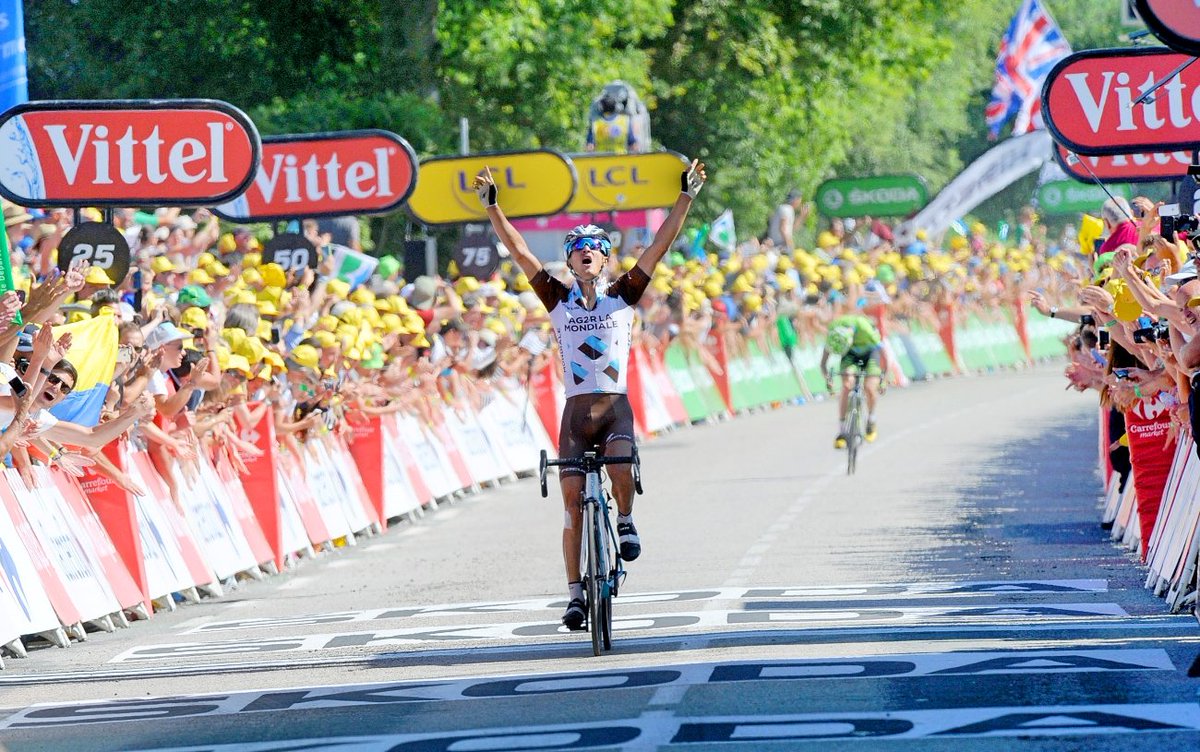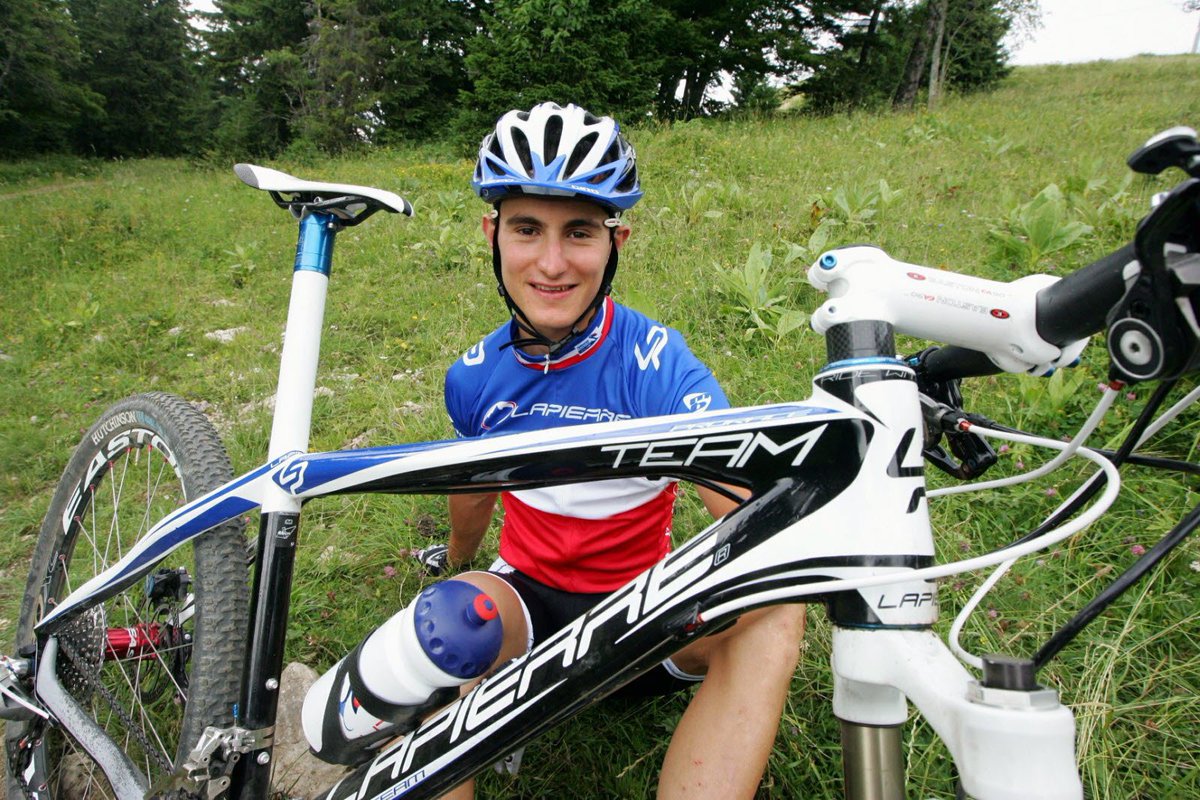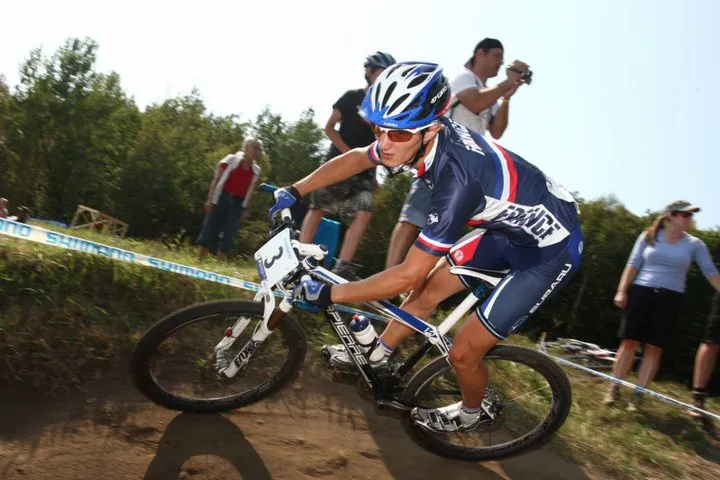After the tense 2017 edition of the Giro d'Italia, the 2018 Giro promised to be another close affair.
Tom Dumoulin (Sunweb) came back to defend his title, but this time he was up against Chris Froome (Sky). 2/29
Tom Dumoulin (Sunweb) came back to defend his title, but this time he was up against Chris Froome (Sky). 2/29
https://twitter.com/NoahvPutten/status/1659256155946856450
roome was the favorite, considering he won the Tour & Vuelta in 2017, but his participation was not without controversy. Froome tested positive for Salbutamol in that Vuelta & the case was still ongoing (he was later cleared). 3/29




That Froome hadn't performed in 2018 didn't bother too many people. He was always there when it was time to perform.
Other tipped outsiders were: Fabio Aru (UAE), Thibaut Pinot (FDJ), Miguel Angel Lopez (Astana), Esteban Chaves & Simon Yates (both Mitchelton). 4/29
Other tipped outsiders were: Fabio Aru (UAE), Thibaut Pinot (FDJ), Miguel Angel Lopez (Astana), Esteban Chaves & Simon Yates (both Mitchelton). 4/29

The Giro started with a prologue in Israel. Froome was off the pace due to a crash during the course recon. He finished 21st & lost 37s to Dumoulin who won the prologue. He lost 20s to Yates, but was still 13s faster than Aru.
Dumoulin gave away the jersey the next day. 5/29




Dumoulin gave away the jersey the next day. 5/29




The next GC action came in the 6th stage, which finished on the Etna. With 5k to go Chaves attacked. He established a 20s lead on the group of favorites where Froome was dropped multiple times. Froome however managed to come back as the pace went up and down. 6/29 

Yates placed a blistering attack with 1.5k to go. He bridged up to Chaves by himself and dragged his teammate to the finish. Chaves won the stage, Yates took the GC lead as they finished 26s ahead of the rest. 7/29




Froome again struggled in stage 9 which finished on Gran Sasso. He got dropped definitely with 2k to go & lost 1min. 10 riders went into the final KM together. Yates was the most explosive & won the stage ahead of Pinot and Chaves. Dumoulin lacked explosiveness & lost 12s. 8/29 

Yates has a 40s lead but went on the attack again in stage 11. He attacked on the short 4th category climb to the finish in Osimo. When Yates went with 1.5k to go, Froome had already been dropped. Yates opened a gap, but Dumoulin made a good impression uphill. 9/29 

Dumoulin came close to closing the gap with a big punch, but couldn’t quite get it done. For the best part of a km Dumoulin was a few seconds behind Yates, but he couldn’t get it closed. Yates won the stage, 2s ahead of Dumoulin. 10/29




For many people this was the moment they completely ruled out a win for Froome. He lost 40s & was 12th in GC, 3.20 down. Froome however made a miraculous comeback in the 14th stage to Monte Zoncolan. 11/29 

Froome put his strong Sky team to work at the bottom of the climb, quickly reducing the peloton. When Poels took over with 8k to go, GC riders started struggling. Dumoulin got dropped relatively early, but maintained a consistent pace. 12/29 

Froome attacked with 5k to go. A few riders could briefly hold his wheel, but they soon had to let go. Yates tried to catch back up to Froome with 3k to go, but couldn’t get the gap closed. Froome won the stage, 6s ahead of Yates. Dumoulin lost 37s in 5th. 13/29






The next day it was back t o old ways for Froome. He got dropped on the penultimate climb with 20k to go. He would lose 1.30 on Yates won his third stage in impressive fashion.
Yates had wanted to extend his lead on Dumoulin ahead of the TT, so he attacked with 17k to go. 14/29
Yates had wanted to extend his lead on Dumoulin ahead of the TT, so he attacked with 17k to go. 14/29

He reached the top of the penultimate climb 20s ahead of Dumoulins group. He gained more time in the downhill & on the final climb. At the finish he was 40s ahead of Dumoulin, who ended third. 15/29




With a lead of 2.10 Yates was in a very good position going into the 34km TT. World champion Dumoulin rode a good TT. He ended 3rd & gained 1.12 on Yates. Froome also rode a good TT. He ended 5th, which moved him into 4th in GC. He was still 3.50 down. 16/29




Dumoulin announced he would attack in the 3 remaining mountain stages, but acknowledged it would be difficult to still win the Giro. He held his word and attacked in stage 18 which finished on Prato Nevoso. 17/29 

Yates followed Dumoulins attack as easy as he appeared to have done the entire Giro, but not much later Froome attacked. Dumoulin jumped to Froome, but Yates was no where to be seen this time. Dumoulin & Froome gained nearly 30s on Yates. 18/29 

This brought renewed excitement to the Giro ahead of stage 19. For the past 2.5 weeks people had wondered if Yates had been racing too aggressively, and the answer looked to be yes. Could he hold on in the extremely difficult stage 19? 19/29 

That question was quickly answered with no. Yates bonked hard early on the Finestre. He got dropped with 86k to go & would lose 39min. The situation looked good for Dumoulin. He led his closest rivals Domenico Pozzovivo (Bahrain) & Froome by 2.20 & 3min respectively. 20/29 

Froome didnt want to go down without a fight. He put his team to work, preparing his attack 5k from the top. Nobody could follow him. There were still 80km to go.
Dumoulin, Pinot, Lopez & Richard Carapaz (Movistar). were quickly 20s behind. 21/29



Dumoulin, Pinot, Lopez & Richard Carapaz (Movistar). were quickly 20s behind. 21/29



Whilst Froome was chased by a ginormous salbutamol inhaler, Dumoulin waited or Pinots teammate Sébastien Reichenbach. Froome’s gap went up to 40s, but having stated with a lead of 3min it was far from a lost cause for Dumoulin. 22/29 

In the downhill to Sertirere Froome’s gap however massively increased. 40s became 1.40 by the time the downhill was over. Dumoulin later said waiting for Reichenbach was a huge mistake because he: ‘Descends like a grandma.’ 23/29 

The cooperation in group Dumoulin was poor, but Froome also was very strong. At the top of sestriere his lead was 2.45. He kept expanding this in the downhill. By the start of Jafferau his lead was 3.30. He was in the virtual GC lead. 24/29 

Dumoulin chose his own pace up the final climb and briefly closed in on Froome, but the gap at the finish was roughly the same. He lost 3.23. Froome won the stage after an 80km solo & led GC by 40s going into the final mountain stage. 25/29






The disbelief was big after the stage. With a lingering doping case doping insinuations were not far from Froome, especially as George Bennett from LottoNL said Froome did a Landis. Jumbo was quick to walk back that statement. 26/29
https://twitter.com/vismaleaseabike/status/1000133284301623297
Dumoulin threw everything he had at Froome in the final mountain stage, but Froome was sufficiently recovered. He even attacked himself with 3k to go.
Froome became the 7th rider to win all 3 Grand Tours & the 3rd rider to win 3 Grand Tours in succession. 27/29



Froome became the 7th rider to win all 3 Grand Tours & the 3rd rider to win 3 Grand Tours in succession. 27/29



Froome & Dumoulin both went to the Tour after the Giro. Froome tried to become the firsts rider since Marco Pantani in 1998 to realize the Giro-Tour double. In the Tour Froome’s teammate Geraint Thomas was the strongest. Dumoulin ended 2nd, Froome 3rd. 28/29 

Yates was not the only rider that bonked hard at the end of the Giro. Pozzovivo lost 8.30 in S19 & dropped 3 places. Dennis lost 15min and fell from 7th to 13th. In S20 Pinot & Yates finished in the grupetto at 45min. Dehydration cost Pinot the 3rd spot on the podium. 29/29 

Video:
Sources: sporza.be/nl/2023/05/21/…
cyclingweekly.com/news/racing/fr…
sporza.be/nl/matches/wie…
wielerflits.nl/nieuws/giro-di…
velo.outsideonline.com/road/road-raci…
cyclingweekly.com/news/racing/fr…
sporza.be/nl/matches/wie…
wielerflits.nl/nieuws/giro-di…
velo.outsideonline.com/road/road-raci…
• • •
Missing some Tweet in this thread? You can try to
force a refresh




